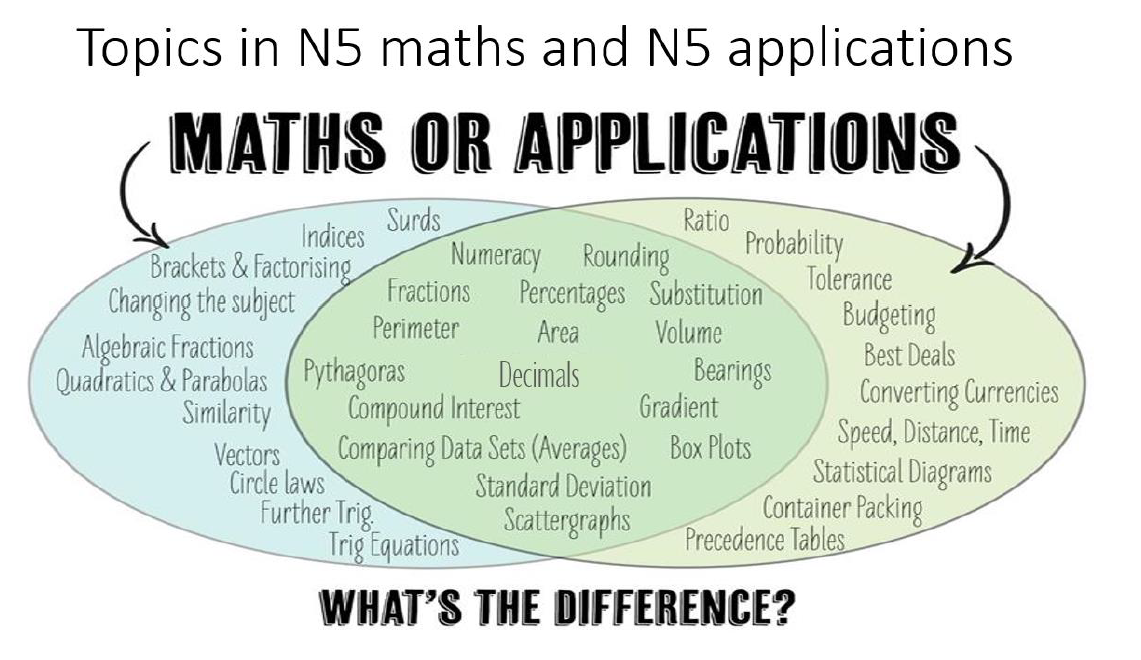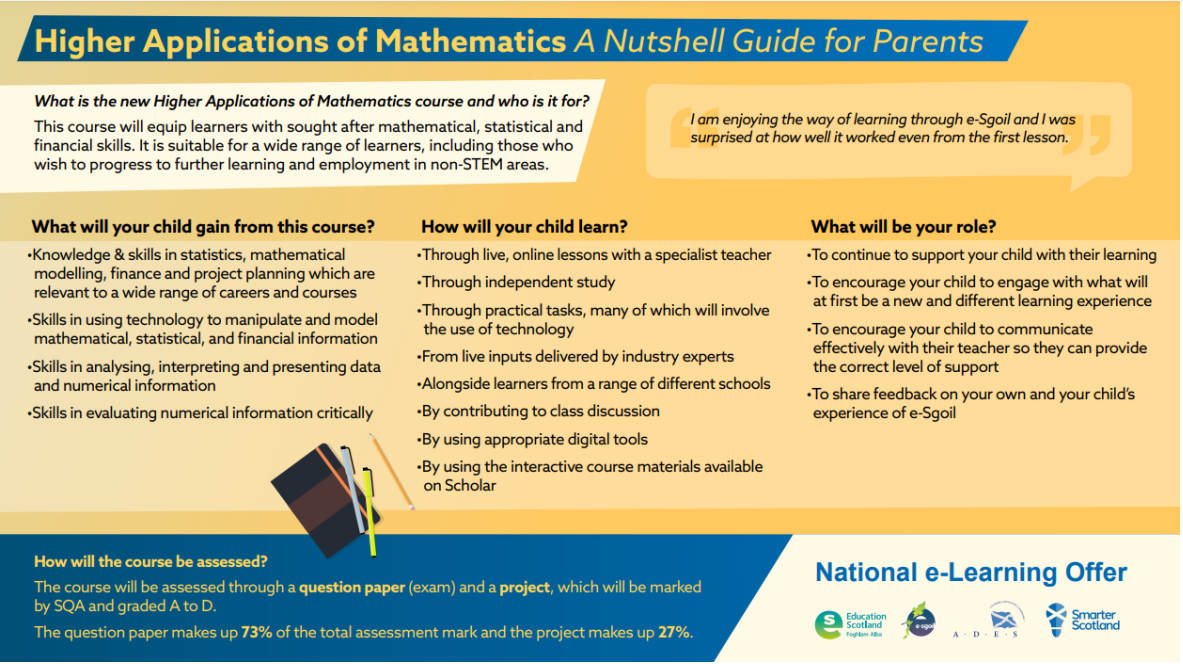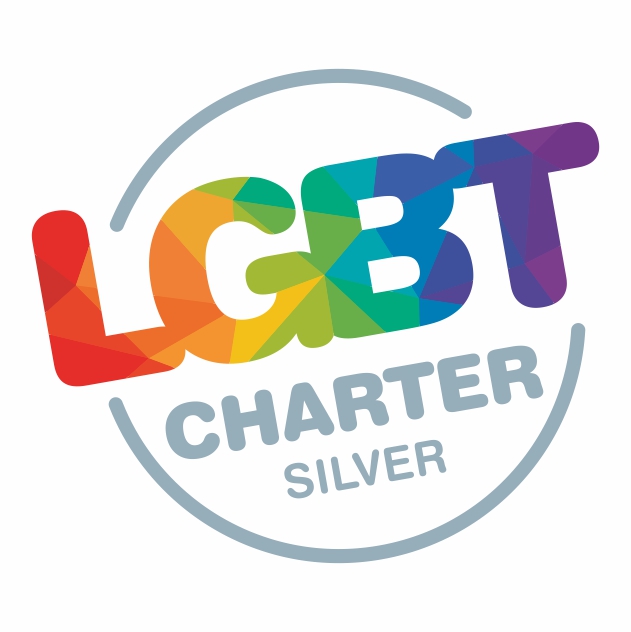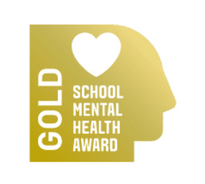Maths
Staff
Mrs K Rouse (Faculty Head)
Miss A Buckley
Miss S Findlay (Maternity Leave)
Mr M Freeman
Mr C McDougall (Depute Head Teacher of House Harris)
Ms C Dolan
Mr S Murray
Mrs L Hyslop (Head of House Harris)
Mrs L Andrew
Mr S Crichton
Mr S Kershaw (Area Cover)
Mr M Aiton (Area Cover)
Why Choose Mathematics?
Maths affects everything we do in our lives. It forms the basis for many other subjects and is fascinating in its own right. It also leads on to a variety of fulfilling careers.
You may not need to use algebra when you go shopping, but the architects who designed the shop did, and so did the builders who built it, and so did the engineers who designed the machines which made the goods you buy.
Obviously, if you want to be a mathematician you are going to have to study Maths. But you don't need to be a mathematician simply because you want to keep studying Maths! Physics, Chemistry and Biology all rely on Maths to some extent, and many subjects, such as Business, Computing Studies and Technical subjects will all be much easier if you have a good grasp of Maths.
Maths is a good "core" subject especially if you are not sure what you want to do after leaving school. If you're thinking of going straight from school into employment, then Maths is quite possibly the most important subject you can take, as the ability to understand and manipulate numbers and mathematical concepts is extremely useful for almost any job. Employers rate Maths skills very highly: there is always a demand for employees who can think logically and process information accurately.
The Course will motivate and challenge learners by enabling them to select and apply mathematical techniques in a variety of mathematical and real-life situations. The Course develops confidence in the subject and a positive attitude towards further study in mathematics. It develops skills in manipulation of abstract terms in order to solve problems and to generalise. The Course allows learners to interpret, communicate and manage information in mathematical form, skills which are vital to scientific and technological research and development.
This Course is designed to develop the learner’s skills in using mathematical language, to explore mathematical ideas, and to develop skills relevant to learning, life and work in an engaging and enjoyable way. It will build on prior learning and develop:
- operational skills in algebra, geometry, trigonometry and statistics
- reasoning skills of investigation, problem solving, analysis and modelling
- some numeracy skills in number processes and information handling
S1/2
S1 Benchmark Activity
https://mathsbenchmark.weebly.com/
![]()
![]()

Click on the following links to
S3
Course
In S3 all pupils will follow a maths course as part of a broad general education, covering level 3 and level 4 Numeracy and Mathematics outcomes and experiences. During S3 pupils will also overtake some of the National 4 and National 5 mathematics outcomes in preparation for the Senior Phase.
Course Assessment
Continuous tracking of pupil performance is supported with formal assessments after each booklet, marked internally by the class teacher.
Course Progression
At the end of S3 pupils will progress to a course leading onto a qualification at National 4 Mathematics, National 5 Applications of Mathematics or National 5 Mathematics.
At the end of S4 pupils could choose from the following progression routes:
- A pupil achieving National 4 Mathematics may progress to National 4/5 Applications of Mathematics.
- A pupil achieving National 5 Applications of Mathematics may progress to Higher Applications of Mathematics.
- A pupil achieving National 5 Mathematics may progress to Higher Mathematics.
Deadlines
Pupils will be given regular deadlines to meet. These deadlines will be partly completed in class but also require a significant amount of work carried out at home. Pupils are expected to mark all of the work covered in a deadline and learn from any mistakes. The extent to which a pupil is meeting deadlines is regularly assessed by the class teacher.
Equipment
Each pupil is expected to bring with them on a daily basis:
- any materials the teacher has issued to assist with their learning i.e. a textbook and jotters
- stationary such as pencils and a ruler
- a scientific calculator
S4
In Mathematics, learners can follow one of the following courses. Click on each link for further information:
![]() National 3 Applications of Maths and National 4 Maths
National 3 Applications of Maths and National 4 Maths
![]() National 4 Maths and National 5 Applications of Maths
National 4 Maths and National 5 Applications of Maths
![]() National 5 Maths
National 5 Maths

S5/6
Progression routes in Mathematics
In S5 and S6 there are a number of courses on offer to develop your mathematics skills and understanding. These courses are designed for both your present needs and for the future demands.
You will continue your progression in Mathematics to either
1. National 5 Mathematics
2. National 5 Applications of Mathematics
3. Higher Mathematics
4. Higher Applications of Mathematics
5. Advanced Higher Mathematics
Mathematics or Applications of Mathematics

Higher Applications of Mathematics

Course Information -Mathematics
National 4 Maths
What will I learn in this subject?
This course covers the three main areas of Relationships (Trigonometry, Pythagoras, Straight Line), Expressions and Formulae (Key Algebra Skills) and Numeracy.
How will I be assessed?
This course is assessed in class on paper - a calculator is allowed.
What are the entry requirements for this subject/level?
Progression from BGE.
National 5 Maths
What will I learn in this subject?
This course explores the three key areas of Relationships (the relationships between functions and their graphical forms) Expressions and Formulae (algebraic skills) and Applications (how mathematical skills can be applied in a context).
There is an additional Numeracy Unit - this is awarded automatically if you achieve a D or higher in the exam.
How will I be assessed?
An external SQA exam consisting of a Non-Calculator and a Calculator Paper.
What are the entry requirements for this subject/level?
Achieved National 4 Maths or National 5 Applications of Maths.
Higher Maths
What will I learn in this subject?
This course explores three key areas of Expressions and Functions (Key Algebraic Skills), Relationships and Calculus (Calculus and Trigonometry) and Applications (how to apply these skills in a context).
How will I be assessed?
An external SQA exam consisting of a Non-Calculator and a Calculator Paper.
What are the entry requirements for this subject/level?
Achieved National 5 Maths.
Advanced Higher Maths
What will I learn in this subject?
This course covers three key areas of Algebra, Proof and Number Theory, Calculus and Matrices, Vectors and Complex Numbers.
How will I be assessed?
An external SQA exam consisting of a Non-Calculator and a Calculator Paper.
What are the entry requirements for this subject/level?
Achieved Higher Maths.
Course Information - Applications of Mathematics
National 5 Applications of Maths
What will I learn in this subject?
This course covers three main skills of Numeracy, Geometry and Measure and Finance and Statistics. This course focusses on how Maths can be applied to situations around us and occur in everyday life - it is less focussed on the abstract and algebra.
How will I be assessed?
An external SQA exam with a non-calculator and a calculator paper.
What are the entry requirements for this subject/level?
Achieved National 4 Maths or National 4 Applications of Maths.
Higher Applications of Maths
What will I learn in this subject?
The Higher Applications of Mathematics course focusses on developing the mathematical and analytical skills required in society and the future workforce. The course will enable learners to develop their quantitative and mathematical literacy, problem-solving skills and reasoning skills as they apply mathematics in real-life contexts. The skills, knowledge and understanding in the course supports learning and further study in a wide range of curricular areas, such as humanities, social sciences, healthcare and business.
The course has four key areas:
- Mathematical Modelling: - Understanding and applying mathematical modelling
- Statistics and Probability: - Applying statistical skills to probability, data, correlation and linear regression & Data analysis using computer software, interpretation and communication
- Finance: - Using spreadsheets (excel) to calculate present and future values of monetary payments, solving problems related to personal finance products and transactions and applying personal financial planning skills
- Planning & Decision Making: - Using mathematical, statistical and financial skills to plan projects and make informed decisions
How will I be assessed?
An external SQA exam, a calculator paper which makes up 73% of the total assessment mark AND a project, marked by the SQA, which makes up the other 27% of the total assessment mark.
What are the entry requirements for this subject/level?
Achieved National 5 Maths or National 5 Applications of Maths.
Careers
Where can Maths take you?
Useful careers websites:








